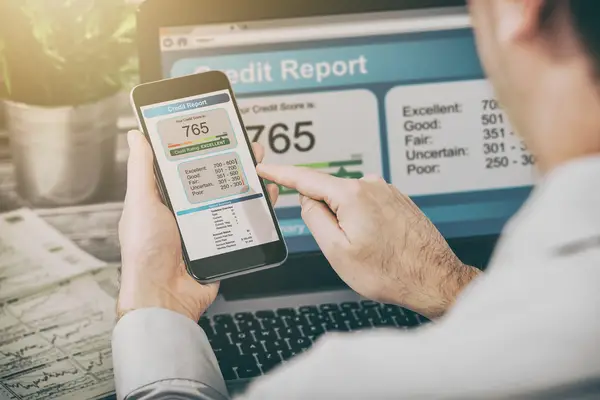
When FICO levels fall, consumers have difficulty taking out more loans. The lower the score — the lower the odds of your next application being accepted. It may be rejected, or you will be charged more interest. If you notice your total drop, take action quickly.
Do you monitor your score? Every year, you are entitled to a free copy of your records from each of the three major bureaus in the USA. In addition, you may use apps to keep track of the indicator. Once you run business credit checks or personal ones, you need to be aware of why they may drop.
Accurate Or Not?
A decrease is not always fair. Sometimes, mistakes on reports from TransUnion, Experian, or Equifax are to blame. If this is the case, read reviews on creditfixed.com to find the best repair services. Professionals will analyze your data to find the most damaging entries. Next, they will liaise with bureaus, banks, and collection agencies to resolve the issues.
For instance, you may have an inadequate credit score for a mortgage due to false late payments, duplicates, evictions, or judgments. It is necessary to collect evidence to disprove such flaws and send dispute letters to bureaus. You may delegate all these tasks to a team of experts, or try doing everything yourself — if you have the time, patience, and expertise to handle it. When all of the derogatories are correct, fixing the score is more difficult.
Why Scores Drop
Legitimate reasons for a decrease include missed payments, applications for new loans or working capital lines of credit, and changes in the way you utilize your limits. Note that around 35% of your score depends on your prior borrowing behavior. This is the most important factor. All balances and the total length of borrowing history also matter. Here are the key factors.
Late Or Missed Payments
If you miss your payment once, the consequences could be more serious than you imagined. Be very careful and set reminders so you do not forget. A delay of over 30 days is reported to at least one of the three main credit bureaus, so your total falls. The longer the delay — the bigger the damage.
If you find yourself unable to make payments for objective reasons, contact the lender and negotiate. They may offer ways to make the debt more manageable. For instance, you could request restructuring. Otherwise, if you simply fail to pay and inform the lender, they will pass on your debt to collectors, which will be reflected on your reports.
New Applications
Yes, every time you request a new line of credit or get approved for a personal loan, your score may drop. This happens because the lender needs to access your history, which is reflected in a hard inquiry. Very few fixing agencies offer to delete these entries. Each of them may influence your score for as long as 12 months.
It is okay to apply for new loans occasionally. However, avoid multiple hard inquiries within a short period of time. This is guaranteed to affect your score negatively.
Increasing Balance
Generally, it is advisable to utilize no more than 30% of your limit. If you max out your credit cards, this is guaranteed to boost the ratio of ‘credit utilization.’ It is the second most important factor accounting for the FICO total. Lending institutions interpret high percentages as proof that you are unable to take on more debt.
To calculate your ratio, add up all of your balances and divide by the sum of your limits. For instance, if there are $20,000 of available funds, but you have used $2,000, the ratio is 10%. This is a positive result. Generally, this indicator should be kept below 30%.
Changes In Limits
A decrease of any limit is another negative event. This is because your utilization ratio rises, as the percentage of the balances grows. For instance, suppose your limit, in the beginning, was $5,000, $1,000 (10%) of which you use. Then, the lender halves the available funds. Now, your balance accounts for a higher percentage of the total — 20%. This may happen if you miss payments or do not use the card actively.
Closing a Credit Card
This event has various negative effects. First, it boosts the utilization ratio. Secondly, it shortens your history, which constitutes roughly 15% of your score.
Paying Off A Loan
Of course, your credit score may even drop if you pay off a loan. Even if it sounds illogical, this commonly happens to borrowers. This is because paying off a financial obligations, such as a loan, can change up your credit mix. Naturally, this can cause a brief drop in your credit rating. Despite this, paying off a loan is still a stress-relieving financial tip for entrepreneurs.
Raising the Score
As a US citizen, you may dispute any inaccuracies on your report for free. However, this is a lengthy and tedious process. It is much easier to hire a repair agency. For a monthly fee, it will analyze your records, identify errors and have them removed. If the score results from your own blunders, you may only improve it by borrowing responsibly.




